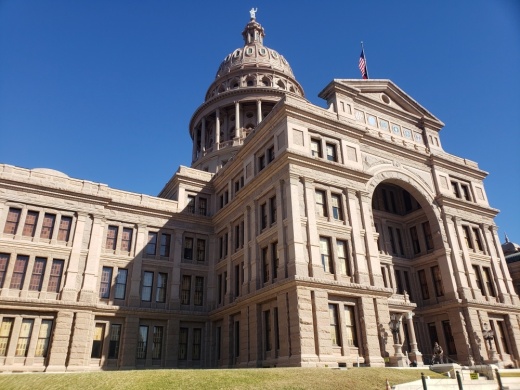Community Impact Newspaper spoke with Joshua Blank, research director of the Texas Politics Project for The University of Texas; Dale Craymer, president of the Texas Taxpayers and Research Association; and Dick Lavine, senior fiscal analyst for Every Texan, to break down the two propositions before voters head to the polls.
Blank said both constitutional amendments received bipartisan support from legislators in 2021, and he believes they are likely to pass to provide homeowners property tax relief, but they would place more of the public education funding burden on the state.
“Ultimately what you’re doing is you are shifting the burden from ... the homeowner automatically handing over some of our property tax into the public education system and switching that to rely on the Legislature to continue to fund public education at equal or higher levels than they have in the past,” he said.
Proposition 1
- Senate Joint Resolution 2
- Passed in second special session of 87th Texas Legislature
- Approved 116-0 in the House and 29-0 in the Senate
- Sent to secretary of state's office Aug. 30
“The constitutional amendment authorizing the Legislature to provide for the reduction of the amount of a limitation on the total amount of ad valorem taxes that may be imposed for general elementary and secondary public school purposes on the residence homestead of a person who is elderly or disabled to reflect any statutory reduction from the preceding tax year in the maximum compressed rate of the maintenance and operations taxes imposed for those purposes on the homestead.”
What it means
Although property taxes are frozen for the disabled and those over the age of 65, this would allow the Legislature to provide additional property tax relief from school districts for even those elderly and disabled homeowners with frozen taxes, Blank and Craymer said.
Estimated cost to the state through 2026: $744 million
Proposition 2
- Senate Joint Resolution 2
- Passed in third special session of 87th Texas Legislature
- Approved 147-0 in the House and 31-0 in the Senate
- Sent to secretary of state's office Oct. 19
“The constitutional amendment increasing the amount of the residence homestead exemption from ad valorem taxation for public school purposes from $25,000 to $40,000.”
What it means
Blank said homeowners in Texas are already offered a $25,000 homestead exemption on property taxes from public school districts—meaning the first $25,000 of a home’s appraised property value does not count against a homeowner’s annual property taxes. If approved, that exemption for homeowners would be raised to $40,000.
Estimated annual cost to the state: $600 million
Why to vote yes
"There was no opposition to either of the proposals at the Legislature," Craymer said. "So I think they’re fairly noncontroversial, and homeowners who vote for them will receive property tax relief. It may not be substantial enough relief to cut anyone’s tax bill, but I think it’s certainly going to take a big chunk out of a potential increase."
Why to vote no
"We are reducing our income from the property tax, which is relatively less regressive than most of the other sources of state general revenue. So it is a small shift, but a shift in the wrong direction," Lavine said. "What we really need to do is work on something to get those appraisals more correct."







